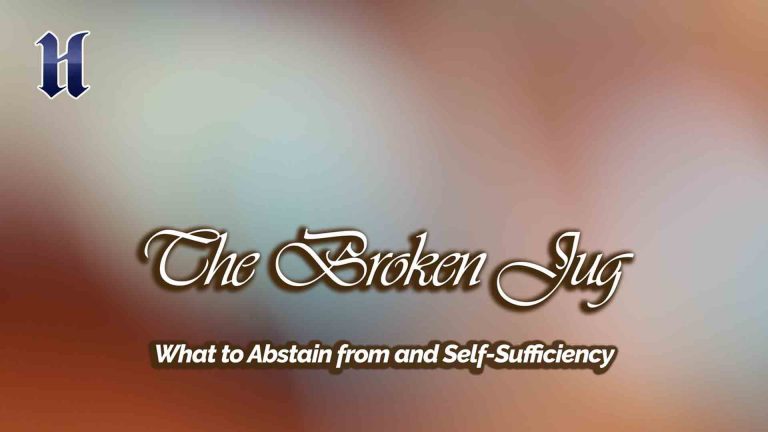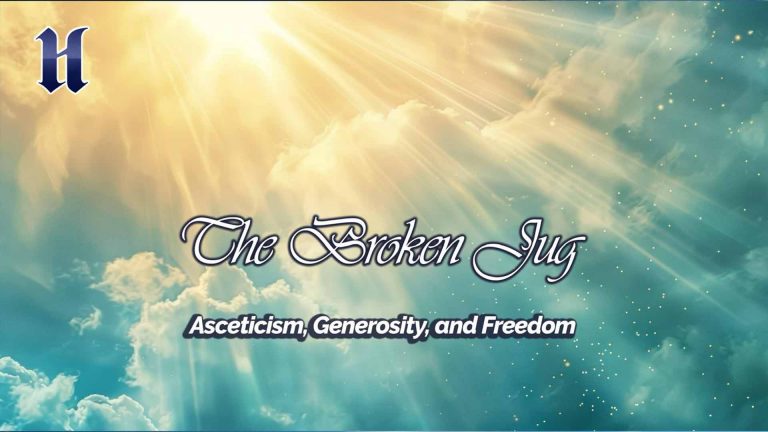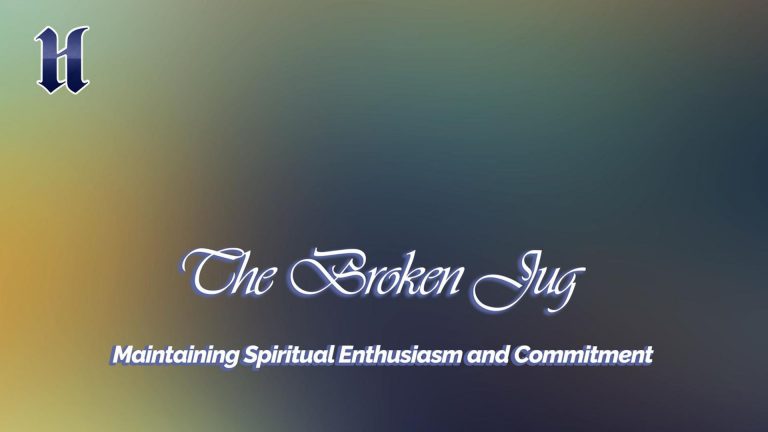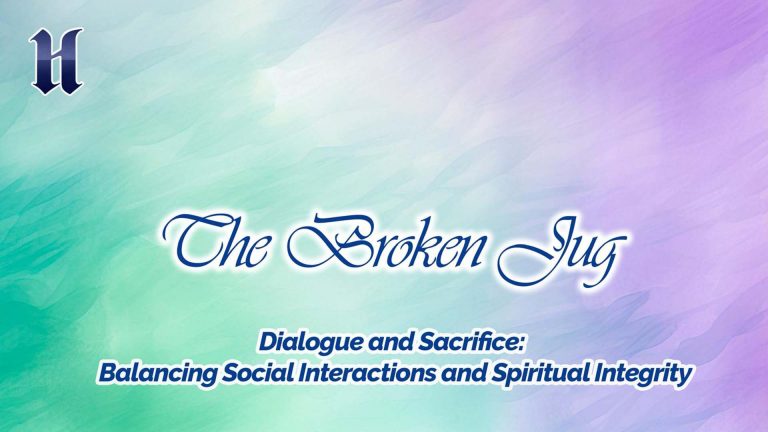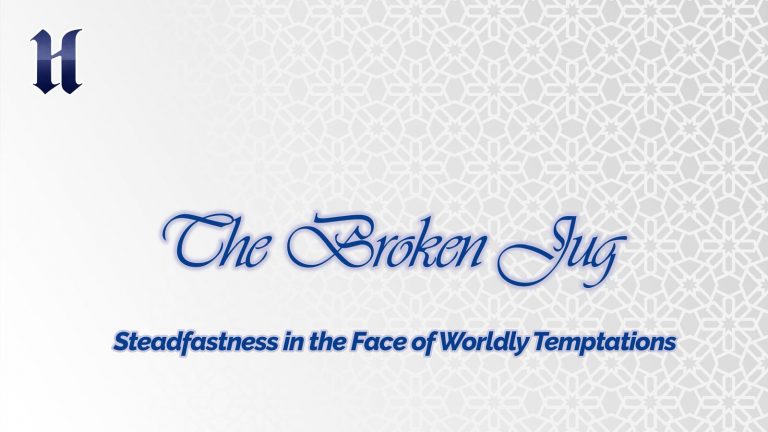When people assess others, they often use themselves as a benchmark, assuming that others share their views, goals, feelings, and thoughts. For instance, someone who dedicates all their efforts to achieving specific worldly positions and titles assumes that others on the same path have the same objective. This applies to individuals pursuing fame, wealth, power, authority, material possessions, or prosperity. However, those who have devoted themselves to serving Allah with sincerity never prioritize these pursuits. Instead, they consider them detrimental, like viruses that can erode the heart and soul. Nevertheless, convincing worldly people of our true intentions is challenging because they do not comprehend the values of a spiritual life or concepts like contentment, sacrifice, altruism, and dedication. They assess others through the lens of their own cultural backgrounds and lifestyles, gauging their perspectives on worldly opportunities, the importance they assign to these opportunities, and the fervor with which they pursue them.
Human nature often leads individuals to believe that the thoughts they cannot remove from their own minds are universal and inherent to everyone. Consequently, those engrossed in material pursuits—the people of the world—tend to view matters this way: “Can someone be truly human without aspiring to higher positions? Can someone be truly human without seeking approval and applause? Can someone be truly human without chasing after wealth or seeking a comfortable and luxurious life? It seems impossible.” For someone who has spent their entire life pursuing worldly pleasures and ambitions, firmly embedding these thoughts in their soul, opening up to a different perspective when it comes to others becomes exceedingly difficult. Those enslaved by these pursuits find it challenging to imagine anyone with a distinct mindset. Therefore, despite the dedicated individuals’ efforts who have committed their lives to faith and serving the Quran, no matter how much they emphasize their sole pursuit of Divine pleasure, they struggle to convey their message to those captivated by worldly interests.
In such circumstances, individuals primarily concerned with worldly matters tend to interpret the words and actions of selfless souls dedicated to the Hereafter in their own context. Suppose you choose to act independently and with humility when certain positions and titles come your way, believing that pursuing them could compromise your service to faith and the Quran. They might argue, “You must be doing this to attain an even higher position.” While you may rightfully attain certain positions through your efforts, accusations and allegations may arise, including the pursuit of power, manipulation, or an attempt to seize control of the state. You genuinely assert that you have no interest in worldly authority, yet they accuse you of concealing the truth and practicing deception. Regardless of your explanations and actions, convincing them of your true intentions remains a formidable task.
However, it’s essential to remember that everyone is responsible for their own attitudes and behaviors. Irrespective of others’ actions or beliefs, devoted servants who have set their sights and hearts on pleasing Allah should prioritize sincerity and integrity in their service, avoiding even the slightest deviations that could undermine trust. They should continue to share their genuine thoughts with others on every possible occasion. Truthfulness in words, actions, and conduct should be their guiding principles, exemplifying steadfastness and rectitude, thereby preventing any opportunities for ill-intentioned individuals to exploit them.
The most valuable asset for those who serve in the path of Allah is their trustworthiness. Thus, it’s imperative for them to steer clear of anything that could compromise this trust. One crucial condition for maintaining this trust is to regard contentment and self-sufficiency as the greatest wealth, refraining from seeking assistance from anyone. Falling into debt or becoming indebted to others can impose significant obligations, effectively tying your hands and restricting your freedom. It’s advisable to avoid incurring debts, even to close family members, or anyone else, if possible. Any form of indebtedness, be it financial or spiritual, constrains your maneuverability. When creditors remind you of their favors and apply pressure by articulating their expectations, declining becomes challenging, resulting in a loss of your autonomy. At times, you may feel compelled to acquiesce to others’ requests that conflict with your values. All these situations erode the trust you’ve diligently built over the years.
Conversely, if you aim to safeguard your reputation and credibility in society and shield yourself from baseless allegations, you must frequently provide an account of your life, akin to Bediüzzaman’s approach. He meticulously disclosed his dietary habits, clothing choices, and means of livelihood to the public to preempt any suspicions or accusations that might arise against him. In modern times, individuals in certain positions are obliged to disclose their financial or asset status, which is often a requirement. However, Bediüzzaman voluntarily revealed his financial standing. If your lifestyle or living standards raise doubts in the minds of others, your trustworthiness and credibility will suffer. Individuals who lose credibility also forfeit the impact of their words, as they become largely disregarded.
Individuals who have committed themselves to spreading the word of God are expected to do so consistently throughout various stages of their lives. They should maintain a life free from hidden agendas, one that can withstand scrutiny at all times. Even if individuals with malicious intent closely examine their lives in an attempt to tarnish their reputation, they should not discover the slightest imperfection. This principle extends not only to these dedicated individuals but also to their families and immediate circles. There should be nothing that defies explanation in their lives. Additionally, they should exercise caution to live lives characterized by purity and chastity because any errors they make could also be imputed to you, and others may exploit them against you. Therefore, especially those in specific positions should chart their life paths meticulously from the outset, eliminating any room for doubt, much as they safeguard their honor and reputation. Regardless of what is scrutinized about them, it should be evident that there is nothing that cannot be accounted for. Otherwise, one individual’s transgression can be attributed to the group they belong to or represent, thus violating the rights of the public. Holding other innocent individuals accountable for this would also weigh heavily in the presence of God. Seeking God’s judgment for such misappropriation would be quite challenging, and one cannot absolve themselves of it before God.
In the same vein as Bediüzzaman, those who were closest to him and inspired by his services adhered to a lifestyle marked by contentment and frugality. As I have previously detailed the circumstances of these fortunate individuals on numerous occasions, they never prioritized themselves but devoted their entire beings to the cause of faith and Quranic services. They led humble lives and did not chase after positions, wealth, or affluence. I have witnessed some of them walking in trousers with patched knees, while threads hung from the sleeves of their worn but clean jackets. They never provided anyone with an excuse or opportunity to speak ill of them. Consequently, their words and actions, coupled with their modest and unassuming way of life, left a profound impact, rendering them immune to criticism.
In conclusion, our most valuable asset lies in the currency of trust, good name, and reputation. Even if we find ourselves lacking certain material resources required for our mission in faith, these shortcomings can be rectified over time. However, trust, credibility, altruism, selflessness, dedication, modesty, and chastity are of a different nature. They constitute the very essence of this sacred mission. Thus, it is incumbent upon each one of us to exercise the same level of vigilance in safeguarding these virtues as we do in upholding our own honor. Irrespective of the depth of scrutiny applied to our lives by others, they should unfailingly encounter the same purity and sincerity. As previously mentioned, there will always be those who remain unconvinced or approach us with skepticism. Nevertheless, by exemplifying this vigilance, we can win the hearts of the majority, earn their trust, and secure their unwavering support. This, of course, with the permission and grace of Allah…


